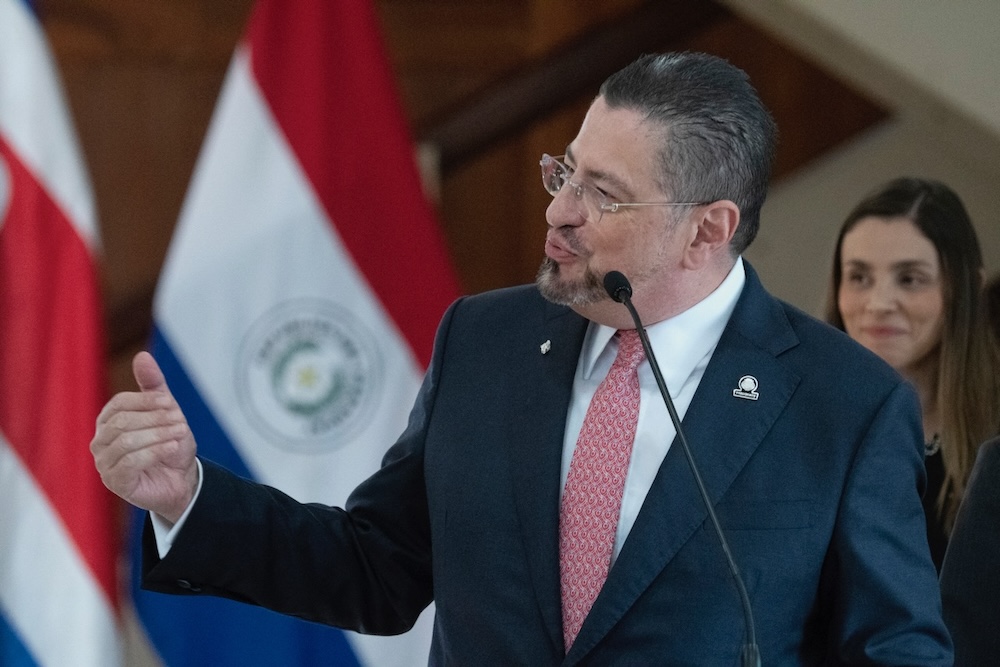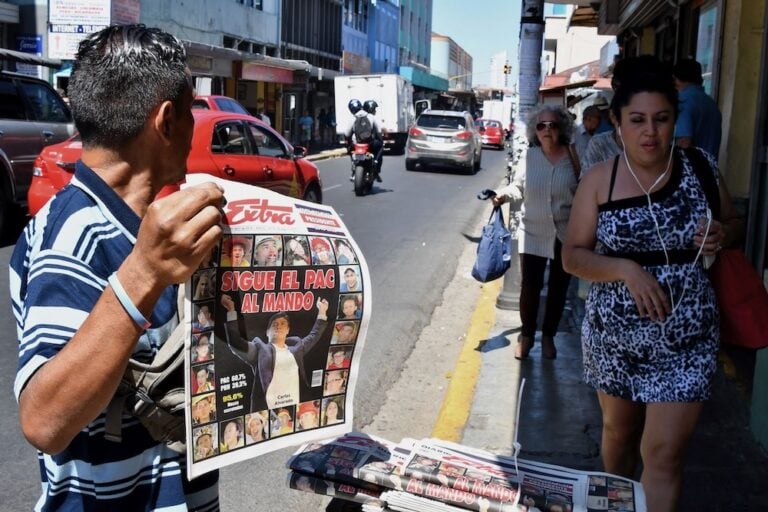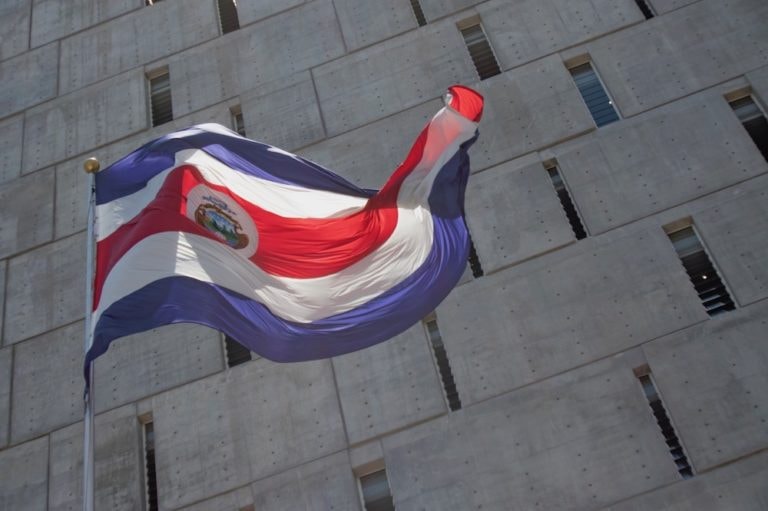Restrictions are caused by the Executive's tendency to stigmatize and attempt to intimidate critical journalism, creating a climate of tension that affects media work and promotes fear and self-censorship.
This statement was originally published on iapa.org on 30 January 2025.
The Executive’s hostile attitude and actions have created an atmosphere of intimidation
An international delegation from the Inter American Press Association (IAPA) verified during their visit to Costa Rica a growing deterioration of freedom of expression and press freedoms. Restrictions are caused by the Executive’s tendency to stigmatize and attempt to intimidate critical journalism, creating a climate of tension that affects media work and promotes fear and self-censorship.
After several days of intense meetings between Sunday and Thursday of this week, these are the main findings of the IAPA mission:
- Constant verbal attacks by President Rodrigo Chaves, who in his weekly press conferences denounces journalists, whom he labels as “rogue press” and “political hitmen” (among other insults).
- Strong harassment of critical journalists on social media, leading to threats from accounts allegedly linked to the government, which could result in physical assaults.
- Troll farms attacking those expressing views contrary to official policies or highlighting government inactions.
- Publication on social media of personal and private information of journalists and activists, exposing them to risks and potential attacks.
- Manipulation in the distribution of official advertising as a system of rewards and punishments that restricts access to advertising for critical media and benefits those who support official policies.
- An unprecedented polarized and tense atmosphere in Costa Rica’s political history, generated by these Executive actions, fostering an environment of fear and intimidation. “Never before has there been such polarization and a climate of political intolerance in this country,” was a common phrase in the discussions held by the delegation.
- Existence of laws criminalizing offenses against honor, contradicting international standards on freedom of expression, which still pose a threat and are used to punish critics in the media.
The president of IAPA, José Roberto Dutriz, expressed concern about the hostile environment in which journalists work in Costa Rica: “It is alarming to see how the climate of intimidation and hostility promoted by the Executive affects the work of the press, as has already happened in other countries in the region that soon turned into authoritarian regimes or outright dictatorships. Freedom of expression is a fundamental pillar of democracy, and we cannot allow it to deteriorate in this way in a country with Costa Rica’s democratic tradition and political coexistence,” stated Dutriz, CEO and general director of La Prensa Gráfica, El Salvador.
Carlos Jornet, president of the Committee on Freedom of the Press and Information and second vice president of IAPA, remarked: “The stigmatization of the critical press and the use of state resources to delegitimize journalists and media outlets set a dangerous precedent that weakens democracy. It is crucial that the government understands that these actions are detrimental to the essential free flow of information in a democratic system,” said Jornet, editorial director of La Voz del Interior, Córdoba, Argentina.
The delegation, led by the organization’s president, Dutriz, met with the Foreign Minister, Arnoldo André; the President of the Legislative Assembly, Rodrigo Arias Sánchez; and the Director of Information and Communication of the Presidency, Luis Carlos Monge. The IAPA had previously requested a meeting with President Rodrigo Chaves, but he declined to meet the delegation due to scheduling conflicts.
The IAPA mission also met with local media executives, including representatives from newspapers La Nación, La Teja, and Extra; Teletica Channel 7 television; and CRHoy digital news site.
The delegation also analyzed the situation with representatives from the Institute for Press and Freedom of Expression (IPLEX), the national association of journalists, and the Program for Freedom of Expression and Right to Information (PROLEDI) of the University of Costa Rica; with the chancellor of the university, Carlos Araya Leandro; with the president of the Inter-American Court of Human Rights, Nancy Hernández; and with former presidents of Costa Rica, Óscar Arias and Laura Chinchilla. The latter signed the Chapultepec and Salta II declarations of IAPA, as did the President of the Legislative Assembly, Arias Sánchez.
On Sunday, the group met with the Secretary General of the Organization of American States, Luis Almagro, where they discussed the complex situation of press freedom in the Americas. The delegation also attended the inauguration ceremony of the Judicial Year at the headquarters of the Inter-American Court, marking the opening of the 172nd regular session of the judicial institution.
In addition to Dutriz and Jornet, the IAPA mission included Gabriela Vivanco, president of the IAPA Executive Committee, La Hora, Ecuador; former presidents Roberto Rock, La Silla Rota, Mexico, and Michael Greenspon, The New York Times, United States; Martha Ramos, president of the Gender Equity and Diversity Committee, Organización Editorial Mexicana, Mexico; and Carlos Lauría, executive director of the organization.
While Costa Rica has a historical tradition of respecting human rights and freedom of expression, alarming signs have been observed over the past two years. Recent reports from IAPA and complaints from well-known journalists and local organizations prompted IAPA’s visit to this country.



